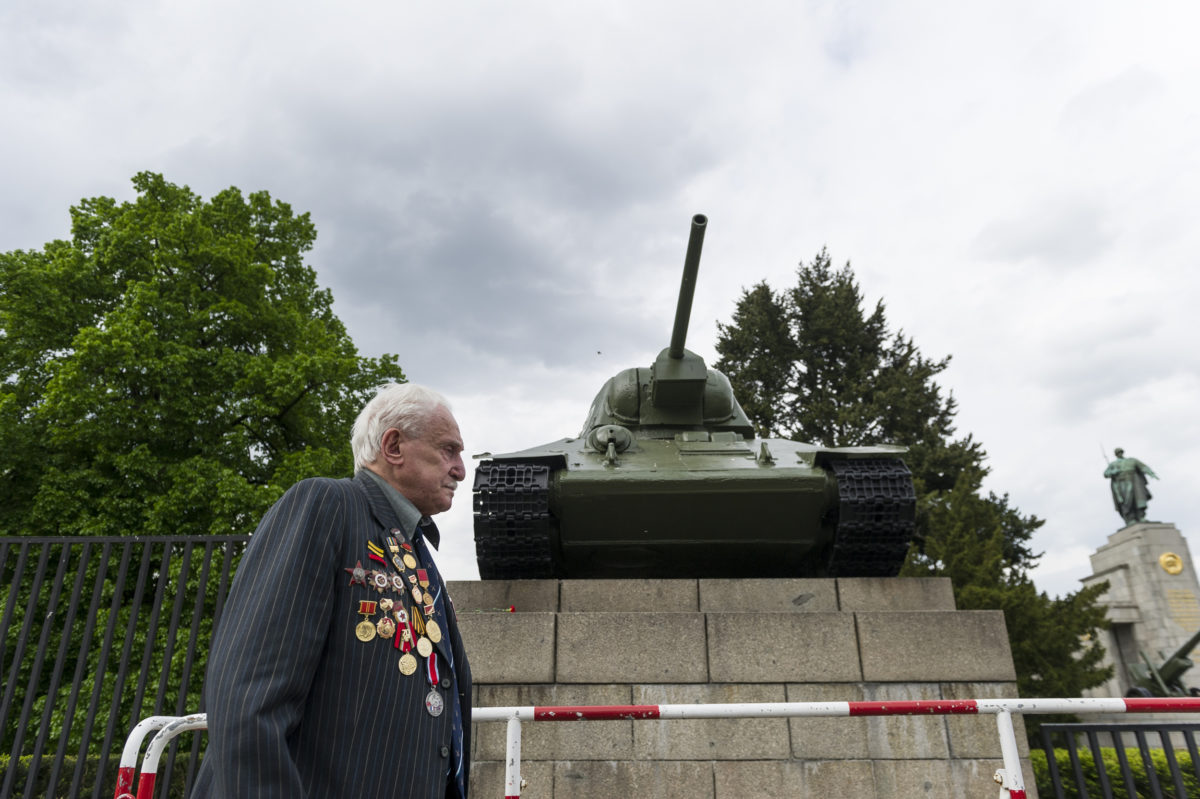On January 27, 1945, David Dushman, a 21-year-old Red Army soldier, drove his T-34 into the high electric barbed-wire fence that surrounded the Nazi death camp Auschwitz. Dushman, who was believed to have been the last surviving liberator of the camp, died in Munich on Saturday, the Munich Jewish community organization confirmed.
“Every contemporary witness who passes away is a loss, but saying goodbye to David Dushman is particularly painful,” Charlotte Knobloch, president of the organization, said in the statement. “Dushman was at the forefront when the Nazis’ murder machinery was smashed in 1945; as the ‘hero of Auschwitz’, he was one of the liberators of the concentration camp and saved countless lives.”
As a veteran of Stalingrad and Kursk, Dushman believed he had already seen the worst of humanity.
However, as he approached the death camp, Dushman recalled looking through the slit of his tank and viewing a monstrous scene unlike anything he had ever witnessed.
“Everywhere there were skeletons. They stumbled from the barracks, sat and lay among the dead,” he told the German newspaper Süddeutsche Zeitung in 2015. “It was horrifying. We threw all of our canned food at them and drove on quickly, to keep chasing the fascists.”
The Red Army tankers kept moving on towards Berlin, hearing about the full extent of Germany’s crimes only after the war.
From its opening in 1940 to the camp’s liberation in 1945, over 1.1 million men, women, and children were systematically murdered at Auschwitz. More than 11 million were killed in the Holocaust — six million of whom were Jews.
“To be honest, we knew hardly anything about Auschwitz,” he recalled.
Seriously wounded three times during the war, Dushman had to have part of one lung removed. He was only one of 69 men from the 12,000 in his division to survive the war.
“I couldn’t walk at all because I got out of breath. I started … I made up my own workout routine for one minute per day. So very, very gradually, slowly, slowly I reached a point where in 1951 I became the champion of Russia (in fencing),” he told Reuters last year from his flat in Munich.
From 1952 to 1988 Dushman coached the Soviet women’s team, according to the International Olympic Committee (IOC). His fencers won two gold medals, two silver medals, and three bronze medals at the 1972 Summer Olympic Games in Munich.
In 2015 Dushman made a special appeal to the IOC committee to promote sport as a path to peace, reported the New York Times.
“My biggest dream and hope for future generations is to live in a world where there is no war,” Mr. Dushman said during his visit. “I urge Thomas Bach (president of the International Olympic Committee) and the IOC to do everything they can to use sport as a way to spread peace and reconciliation around the world. War is something that should never happen again.”





